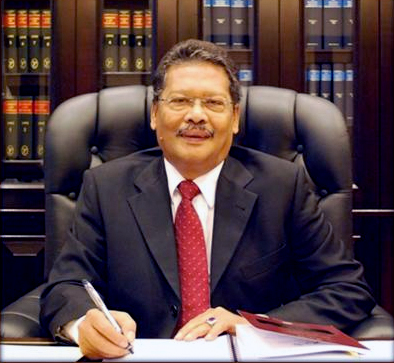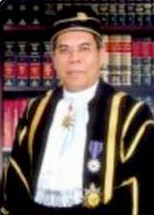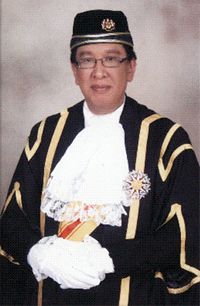
A Biblical alternative?
THE 14 Oct 2013 Court of Appeal ruling that upheld the ban on the Catholic Church from using “Allah” in its publication, The Herald, wasn’t unexpected. And it has been criticised both nationally andinternationally, including by Muslims.
Barisan Nasional (BN) component parties and leaders from Sabahand Sarawak have also cried foul over the government’s actions and the court’s decision. And in what can only be described as confused, the cabinet has decided that despite the Court of Appeal’s ruling, “Allah” can still be used in Christian worship and in the Bahasa Malaysia bibles in Sabah and Sarawak.
The Catholic Church can still appeal the appelate court’s decision at the Federal Court and several quarters believe that would be the right thing to do because much is at stake. Dr Wong Chin Huat expounds on the implications of the Court of Appeal ruling, how Malaysia has come to this, and what needs to happen for the mess to be undone.
TNG: What are the implications of the Court of Appeal decision?

Judge Mohamed Apandi Ali: Redefining the constitution? (source: kehakiman.gov.my)
Firstly, Judge Mohamed Apandi Ali has attempted to redefine our nationhood with implications more far-reaching than Tun Dr Mahathir Mohamad’s 2001 “Islamic state” declaration. How so? The judge makes the guarantee of fundamental liberties dependent on a peculiar and expansionist reading of Article 3(1) of the Federal Constitution. Article 3(1) states that, “Islam is the religion of the federation but other religions may be practiced in peace and harmony in any part of the federation”.
What’s problematic is that Mohamed Apandi ruled that the intention of “in peace and harmony” in Article 3(1) was to “protect the sanctity of Islam” and to “insulate” it against any threat. The judge also claimed that this was part of the social contract intended by the nation’s founding leaders. However, it is well-known that the original purpose of Article 3(1) was to provide a ceremonial role for Islam while ensuring that Malaysia remained a secular state where other faith groups could worship in peace and harmony. It was not meant to do what the judge claims it is supposed to do.

Judge Abdul Aziz qualified denying non-Muslims their rights by citing incidences of violence against them (© kehakiman.gov.my)
The judgement’s second implication is it affirms a culture of impunity. In effect, the judgment is saying that the state can curb your constitutional rights if by exercising these rights, you upset others who decide to act violently because they are confused. Judge Abdul Aziz Abdul Rahim cites the arson attacks on churches and mosques after the 2009 High Court judgement which overturned the ban on “Allah” to justify the ban among non-Muslims. By doing so, the judge completely relieves the state of any responsibility to ensure law and order.
The third implication concerns the status of Malay as the national language. Making an explicit reference to Article 160, Mohamed Apandi further justifies his judgement by stressing that the constitutional definition of Malay is “a person who professes the religion of Islam” and “habitually speaks the Malay language”. Hence, the judge drives home the point that since Malays, who are by default Muslims, speak the Malay language and “Allah” is deemed to be from the Malay language, then the use of “Allah” by non-Muslims may disrupt peace and harmony.
By this logic, curbs on using the Malay language can be extended beyond “Allah” or any of the other words that the Home Ministry and various state laws have declared are exclusive to Muslims. Now, if the use of Malay for religious purposes is meant for Muslims only, can Malay still be the national language? How can a language be a national language if its use can be limited to a particular racial or religious group?

Judge Mohd Zawawi Salleh’s judgement cited dubious sources on the internet (© kehakiman.gov.my)
The final implication of the Court of Appeal judgement is that Judge Mohd Zawawi Salleh has likely set a precedent in intervening into the religious affairs of a faith community. How so? His judgment involves an elaboration of why the translation of “Elohim” into “Allah” for the Arabic Bible is problematic. Absurdly enough, his expert opinion turned out to copied and pasted from internet references.
Malaysia is undoubtedly the biggest loser in all of this. Firstly, we have leaped towards a Muslim ethnocracy. Secondly, we are heading down the road of mob rule. Thirdly, we are losing our national language. And finally, we are completing the fusion of state and religion — religious leaders already want to make law. Now judges aspire to be religious experts.
Why wasn’t the decision surprising?
Whenever their Malay-Muslim base is threatened, the ruling Malay class will look for a bogey. Christian natives who have been praying to Allah for nearly two centuries are just the latest target.
For historical perspective, Christian natives pose a crisis of anxiety about the notion of “Malay” in west coast Malaysia’s bipolar setting where ethnic boundaries are jealously guarded. Native Christians look like Malays, they speak Malay and they are theoretically Bumiputera but they are not Muslim. Even though 50 years of being Malaysia has witnessed a constant shrinking of Christian Bumiputeras through coerced or enticed conversions, many Muslim nationalists are fearful of two-way conversions, no matter how small the reverse traffic may be.
Christians in other parts of the world use “Allah” in their worship and it isn’t a problem. So, what is the issue in Malaysia really all about?
The “Allah” dispute has nothing to do with religion but everything to do with politics. Otherwise, how do we explain that this is not an issue in the Arab world, South Asia andIndonesia? Are we suggesting that the Arabs, South Asians and Indonesians or for that matter, Sabahan and Sarawakian Muslims, who are not troubled by the use of “Allah” by other faith adherents, are lesser Muslims?
The real reason for all this is that Umno’s regime and the Bumiputera policy are maintained by three mechanisms:
- ethnic expansion of Malay-Muslims to ensure their dominance,
- socio-cultural policing of Malay-Muslims to assert Umno’s dominance amongst them, and
- malapportionment and gerrymandering of constituencies to ensure Umno/BN’s over-representation.
The need for ethnic expansion has led to a constant need for inward conversion and a paranoia of outward conversion. Over time, harping on the fear of Muslim apostasy has even become a contest of one-upmanship between Umno and the Malay opposition parties. For certain, political change has significantly transformed the Malay political landscape, with some PAS politicians and Pakatan Rakyat (PR), which PAS is a member of, boldly affirming non-Muslims’ rights. And yet, some PR supporters and politicians from PAS still subscribe to Umno’s narrative.

Apart from appealing against this judgement at the Federal Court, what needs to happen now to ensure that minority rights in Malaysia are upheld?
The future of Malaysia lies in Borneo. Trapped by bipolar politics, west coast Malaysia is almost beyond repair. Having grown up in more relaxed multi-polar societies, Sabahans and Sarawakians are poised to lead Malaysia in ethnic relations.
If Muslims and Christians from Borneo can stand by each other and embrace each other’s right to pray to Allah, the paranoia over apostasy that has been manufactured in west coast Malaysia will immediately collapse. But one wonders, after 50 years of divide-and-rule along religious fault-lines by Kuala Lumpur, is Borneon unity still possible?
It bears remembering that Malaysia was formed with an explicit commitment by all four countries — Malaya, Singapore, Sabah and Sarawak — to be a secular federal democracy. Sabah and Sarawak never signed up for an ethnocracy or theocracy. If any state insists on building one in violation of the Malaysia Agreement, that state should then get out of the federation. Just like in a marriage, it is the party that mucks up who should move out.
The cabinet has now declared that the Court of Appeal ruling does not need to be upheld in Sabah and Sarawak. What does this tell us?
The Najib Razak administration clearly gave little thought about the implications of appealing the High Court decision that overturned the government’s banning of “Allah” among non-Muslims.
And now, instead of finding ways to nullify or reverse the dangerous doctrine that constitutional liberties are subject to Article 3(1), Putrajaya tries to divide and rule again. It is trying to buy off Sabah and Sarawak by offering a “1Malaysia, 2 Allahs, endless possibilities” solution.
But can you check “Allah” into your luggage when your flight enters Peninsular Malaysia’s airspace and take “Allah” out when you fly out of Peninsular Malaysia? My Allah! Has “Allah” in Malaysia become like marijuana in Europe, allowed in some states but prohibited in others?
Wong Chin Huat is a political scientist by training and was a journalism lecturer prior to joining the Penang Institute, a Penang government think tank. Nut Graph


No comments:
Post a Comment
Note: Only a member of this blog may post a comment.